We are delighted to present a selection of our newly published May 2015 titles from our core subjects of Anthropology, Environmental Studies, File & Media Studies, History, and Urban Studies, along with a selection of our New in Paperback titles.
We are especially excited to announce the publication of Militant Around the Clock? by Nikolaos Papadogiannis.
“An original, well-researched book that provides a fresh perspective on youth and leisure in contemporary history by looking at Greece in the 1970s.” · Frank Trentmann, Birkbeck College, University of London
———————————————————————————————————————————–
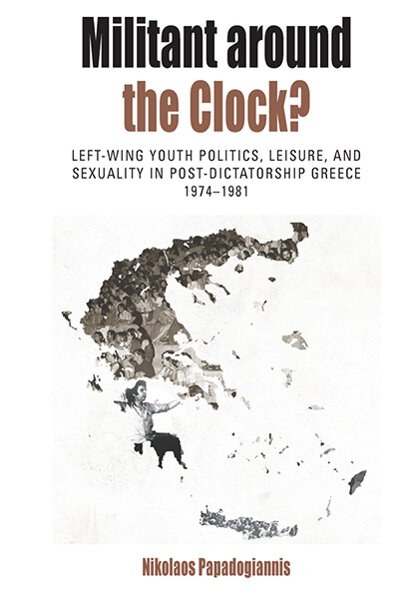 MILITANT AROUND THE CLOCK?
MILITANT AROUND THE CLOCK?
Left-Wing Youth Politics, Leisure, and Sexuality in Post-Dictatorship Greece, 1974-1981
Nikolaos Papadogiannis
Volume 13, Protest, Culture & Society
During the 1970s, left-wing youth militancy in Greece intensified, especially after the collapse of the military dictatorship in 1974. This is the first study of the impact of that political activism on the leisure pursuits and sexual behavior of Greek youth, analyzing the cultural politics of left-wing organizations alongside the actual practices of their members. Through an examination of Maoists, Socialists, Euro-Communists, and pro-Soviet groups, it demonstrates that left-wing youth in Greece collaborated closely with comrades from both Western and Eastern European countries in developing their political stances. Moreover, young left-wingers in Greece appropriated American cultural products while simultaneously modeling some of their leisure and sexual practices on Soviet society. Still, despite being heavily influenced by cultures outside Greece, left-wing youth played a major role in the reinvention of a Greek “popular tradition.” This book critically interrogates the notion of “sexual revolution” by shedding light on the contradictory sexual transformations in Greece to which young left-wingers contributed.
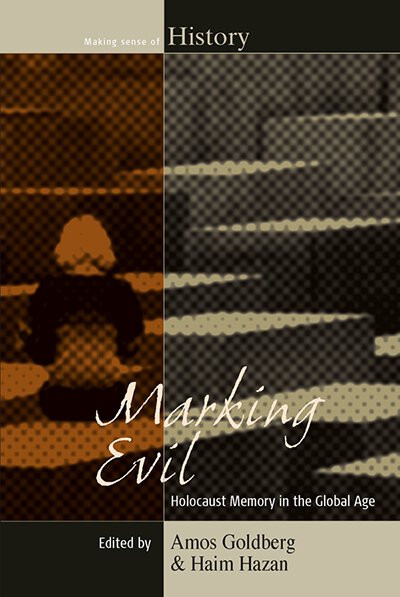 MARKING EVIL
MARKING EVIL
Holocaust Memory in the Global Age
Edited by Amos Goldberg and Haim Hazan
Volume 21, Making Sense of History
Talking about the Holocaust has provided an international language for ethics, victimization, political claims, and constructions of collective identity. As part of a worldwide vocabulary, that language helps set the tenor of the era of globalization. This volume addresses manifestations of Holocaust-engendered global discourse by critically examining their function and inherent dilemmas, and the ways in which Holocaust-related matters still instigate public debate and academic deliberation. It contends that the contradiction between the totalizing logic of globalization and the assumed uniqueness of the Holocaust generates continued intellectual and practical discontent.
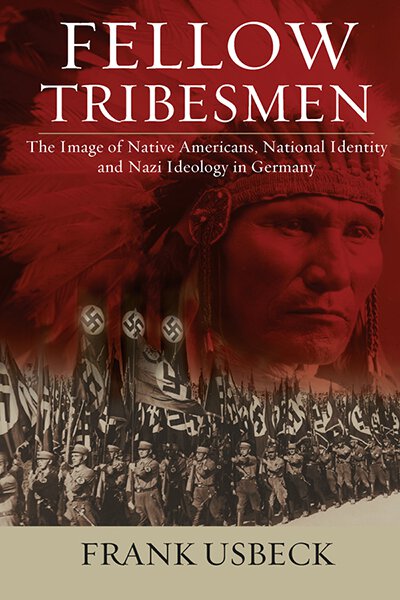 FELLOW TRIBESMEN
FELLOW TRIBESMEN
The Image of Native Americans, National Identity, and Nazi Ideology in Germany
Frank Usbeck
Volume 19, Studies in German History
Throughout the nineteenth and twentieth centuries, Germans exhibited a widespread cultural passion for tales and representations of Native Americans. This book explores the evolution of German national identity and its relationship with the ideas and cultural practices around “Indianthusiasm.” Pervasive and adaptable, imagery of Native Americans was appropriated by Nazi propaganda and merged with exceptionalist notions of German tribalism, oxymoronically promoting the Nazis’ racial ideology. This book combines cultural and intellectual history to scrutinize the motifs of Native American imagery in German literature, media, and scholarship, and analyzes how these motifs facilitated the propaganda effort to nurture national pride, racial thought, militarism, and hatred against the Allied powers among the German populace.
 THE RESPECTABLE CAREER OF FRITZ K.
THE RESPECTABLE CAREER OF FRITZ K.
The Making and Remaking of a Provincial Nazi Leader
Hartmut Berghoff and Cornelia Rauh
Translated from the German by Casey Butterfield
Volume 18, Studies in German History
Entrepreneur and Nazi functionary Fritz Kiehn lived through almost 100 years of German history, from the Bismarck era to the late Bonn Republic. A successful manufacturer, Kiehn joined the Nazi Party in 1930 and obtained a number of influential posts after 1933, making him one of the most powerful Nazi functionaries in southern Germany. These posts allowed him ample opportunity to profit from “Aryanizations” and state contracts. After 1945, he restored his reputation, was close to Adenauer’s CDU during Germany’s economic miracle, and was a respected and honored citizen in Trossingen. Kiehn’s biography provides a key to understanding the political upheavals of the twentieth century, especially the workings of the corrupt Nazi system as well as the “coming to terms” with National Socialism in the Federal Republic.
 IMPERIAL PROJECTIONS
IMPERIAL PROJECTIONS
Screening the German Colonies
Wolfgang Fuhrmann
Volume 17, Film Europa
The beginning of filmmaking in the German colonies coincided with colonialism itself coming to a standstill. Scandals and economic stagnation in the colonies demanded a new and positive image of their value for Germany. By promoting business and establishing a new genre within the fast growing film industry, films of the colonies were welcomed by organizations such as the Deutsche Kolonialgesellschaft (German Colonial Society). The films triggered patriotic feelings but also addressed the audience as travelers, explorers, wildlife protectionists, and participants in unique cultural events. This book is the first in-depth analysis of colonial filmmaking in the Wilhelmine Era.
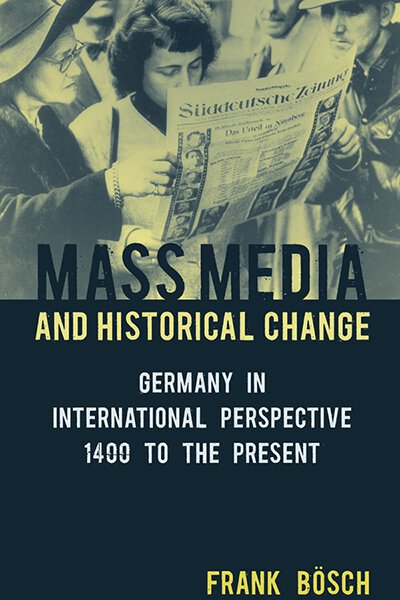 MASS MEDIA AND HISTORICAL CHANGE
MASS MEDIA AND HISTORICAL CHANGE
Germany in International Perspective, 1400 to the Present
Frank Bösch
Translated from the German by Freya Buechter
Media influenced politics, culture, and everyday life long before the invention of the Internet. This book shows how the advent of new media has changed societies in modern history, focusing not on the specifics of technology but rather on their distribution, use, and impact. Using Germany as an example for international trends, it compares the advent of printing in Europe and East Asia, and the impact of the press on revolutions, nation building, and wars in North America and Europe. The rise of tabloids and film is discussed as an international phenomenon, as the importance of media during National Socialism is looked at in comparison with Fascist Italy and Spain. Finally, this book offers a precise analysis of media during the Cold War, with divided Germany providing the central case study.
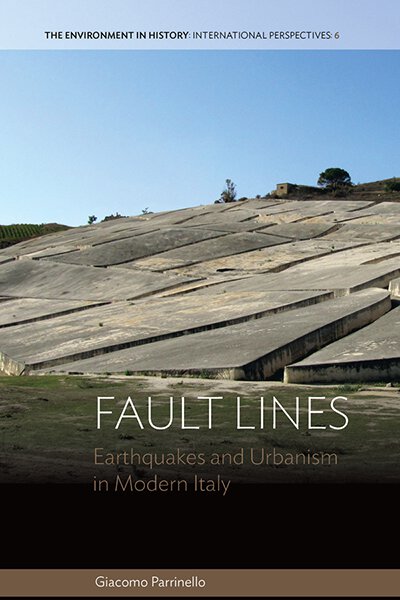 FAULT LINES
FAULT LINES
Earthquakes and Urbanism in Modern Italy
Giacomo Parrinello
Volume 6, Environment in History: International Perspectives
Earth’s fractured geology is visible in its fault lines. It is along these lines that earthquakes occur, sometimes with disastrous effects. These disturbances can significantly influence urban development, as seen in the aftermath of two earthquakes in Messina, Italy, in 1908 and in the Belice Valley, Sicily, in 1968. Following the history of these places before and after their destruction, this book explores plans and developments that preceded the disasters and the urbanism that emerged from the ruins. These stories explore fault lines between “rural” and “urban,” “backwardness” and “development,” and “before” and “after,” shedding light on the role of environmental forces in the history of human habitats.
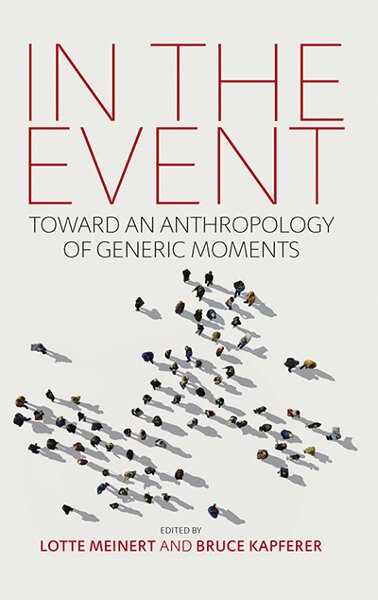 IN THE EVENT
IN THE EVENT
Toward an Anthropology of Generic Moments
Edited by Lotte Meinert and Bruce Kapferer
Events are “generative moments” in at least three senses: events are created by and condense larger-scale social structures; as moments, they spark and give rise to new social processes; in themselves, events may also serve to analyze social situations and relationships. Based on ethnographic studies from around the world—varying from rituals and meetings over protests and conflicts to natural disasters and management—this volume analyzes generative moments through events that hold the key to understanding larger social situations. These events—including the Ashura ritual in Bahrain, social cleavages in South Africa, a Buddhist cave in Nepal, drought in Burkina Faso, an earthquake in Pakistan, the cartoon crisis in Denmark, corporate management at Bang & Olufsen, protest meetings in Europe, and flooding and urban citizenship in Mozambique—are not simply destructive disasters, crises, and conflicts, but also generative and constitutive of the social.
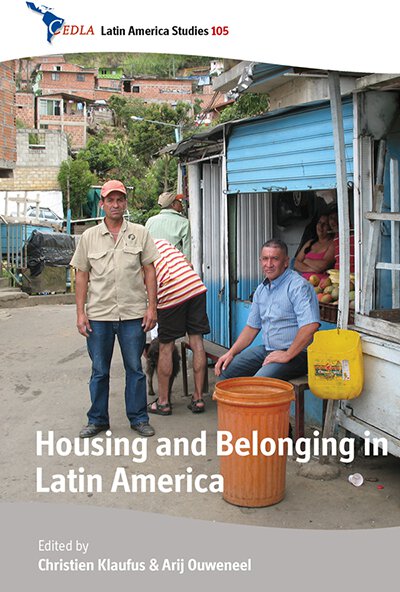 HOUSING AND BELONGING IN LATIN AMERICA
HOUSING AND BELONGING IN LATIN AMERICA
Edited by Christien Klaufus and Arij Ouweneel
Volume 105, CEDLA Latin America Studies
The intricacies of living in contemporary Latin American cities include cases of both empowerment and restriction. In Lima, residents built their own homes and formed community organizations, while in Rio de Janeiro inhabitants of the favelas needed to be “pacified” in anticipation of international sporting events. Aspirations to “get ahead in life” abound in the region, but so do multiple limitations to realizing the dream of upward mobility. This volume captures the paradoxical histories and experiences of urban life in Latin America, offering new empirical and theoretical insights to scholars.
——————————————————————————————————————————–
New in Paperback!
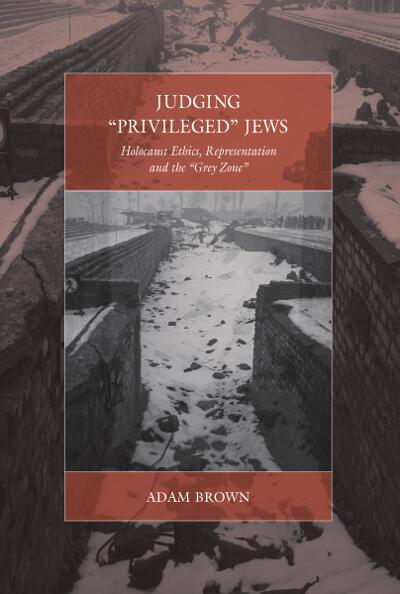 JUDGING ‘PRIVILEGED’ JEWS
JUDGING ‘PRIVILEGED’ JEWS
Holocaust Ethics, Representation, and the ‘Grey Zone’
Adam Brown
Volume 18, War and Genocide
“This is a well-written, original, and important book that breaks new ground by providing a detailed analysis of this group of victims, thereby deep-ening our understanding of the Holocaust and our appreciation of the complexities of human nature in extreme circumstances.” · Jewish Book Council Review
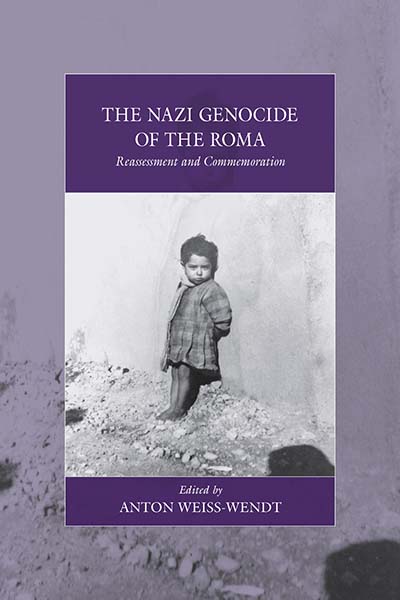 THE NAZI GENOCIDE OF THE ROMA
THE NAZI GENOCIDE OF THE ROMA
Reassessment and Commemoration
Edited by Anton Weiss-Wendt
Volume 17, War and Genocide
“The Nazi Genocide of the Roma brings together a valuable array of case studies that successfully challenge historical arguments minimizing the genocide of the Roma under the Nazis. The contributing scholars have shown not only how ethnicity informed criminality, but also how ambiguous policy against the Roma should not negate genocidal intent. This volume is a critical contribution to the field and should be required reading for any course on the Holocaust.” · History: Review of New Books
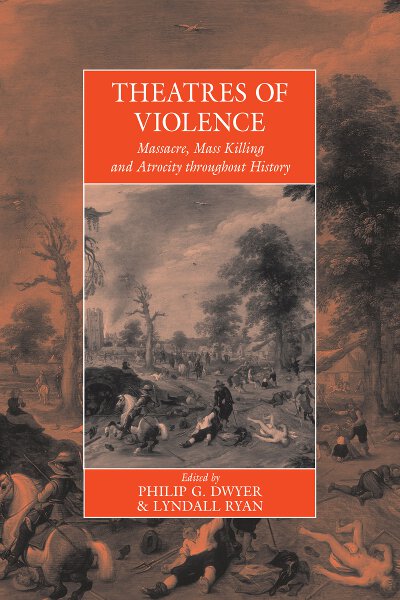 THEATRES OF VIOLENCE
THEATRES OF VIOLENCE
Massacre, Mass Killing and Atrocity throughout History
Edited by Philip G. Dwyer and Lyndall Ryan
Volume 11, War and Genocide
“Making a distinction between ‘massacre’ and ‘genocide,’ the editors strive to launch a new field of ‘massacre studies,’ focusing on mass killings that are not genocidal in intent. The book should be added to any library collecting in the field of mass violence studies.” · Choice
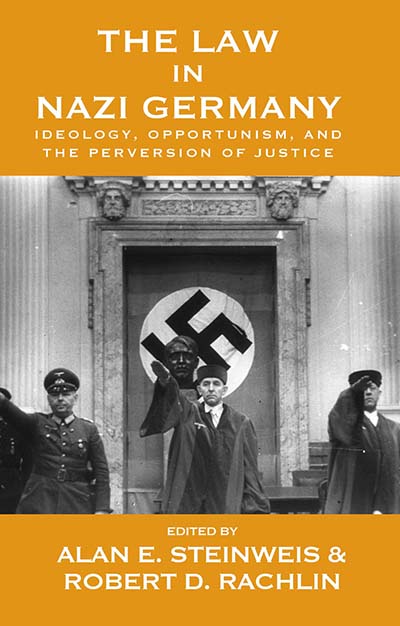 THE LAW IN NAZI GERMANY
THE LAW IN NAZI GERMANY
Ideology, Opportunism, and the Perversion of Justice
Edited by Alan E. Steinweis and Robert D. Rachlin
Volume 5, Vermont Studies on Nazi Germany and the Holocaust
“This collection of essays on The Law in Nazi Germany achieves two main objectives: first, it provides a concise overview of the current research strata on law in Nazi Germany, and second, the essays leave enough space to invite the reader to pose additional questions about the subject and pursue further reading.” · German History
